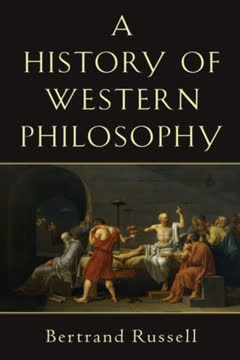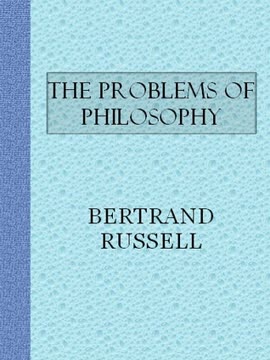نکات کلیدی
1. نارضایتی اغلب ناشی از علل روانشناختی است نه شرایط خارجی
"علل روانشناختی نارضایتی، واضح است، بسیار و متنوع هستند. اما همه آنها یک چیز مشترک دارند."
عوامل درونی غالباند. بسیاری از افراد نارضایتی خود را به شرایط خارجی نسبت میدهند، اما ریشههای اصلی اغلب روانشناختی هستند. این عوامل درونی شامل:
- انتظارات غیرواقعی
- گفتوگوی منفی با خود
- کمالگرایی
- تفکر مکرر درباره شکستهای گذشته
- ترس از آینده
بازنگری شناختی کلید است. با شناسایی و پرداختن به این علل روانشناختی، افراد میتوانند بهطور قابل توجهی خوشحالی خود را بهبود بخشند، حتی بدون تغییر شرایط خارجی. این شامل به چالش کشیدن الگوهای فکری منفی، تمرین خودشفقتی و توسعه دیدگاه متعادلتری نسبت به چالشهای زندگی است.
2. غلبه بر رقابت و حسادت به رضایت بیشتری منجر میشود
"حسادت اساس دموکراسی است."
رقابت نارضایتی میآورد. در جامعه مدرن، تلاش مداوم برای برتری بر دیگران اغلب به نارضایتی مزمن منجر میشود. این ذهنیت رقابتی در جنبههای مختلف زندگی تجلی مییابد:
- پیشرفت شغلی
- وضعیت اجتماعی
- داراییهای مادی
- ظاهر فیزیکی
توسعه همکاری و قدردانی. برای غلبه بر این وضعیت، بر رشد شخصی تمرکز کنید به جای مقایسه خود با دیگران. حس قدردانی از آنچه دارید را پرورش دهید و به دنبال فرصتهای همکاری به جای رقابت باشید. این تغییر در ذهنیت میتواند به روابطی پربارتر و حس رضایت بیشتری منجر شود.
3. توسعه حس هدف و شوق به زندگی برای خوشحالی ضروری است
"شوق، راز خوشحالی و رفاه است."
تجربیات زندگی را در آغوش بگیرید. پرورش شوق به زندگی شامل نزدیک شدن به تجربیات با کنجکاوی، اشتیاق و گشودگی است. این نگرش میتواند حتی فعالیتهای عادی را به منابعی از شادی و رضایت تبدیل کند.
علاقه خود را پیدا کنید. کشف و پیگیری فعالیتهایی که شوق شما را شعلهور میکند میتواند حس عمیقی از هدف را فراهم کند. این ممکن است شامل:
- فعالیتهای خلاقانه
- کارهای داوطلبانه
- یادگیری مهارتهای جدید
- کاوش در طبیعت
- مشغول شدن به کارهای معنادار
با جستجوی فعالانه تجربیاتی که شادی و هدف به ارمغان میآورد، افراد میتوانند بهطور قابل توجهی خوشحالی و رفاه کلی خود را افزایش دهند.
4. پرورش روابط معنادار و محبت کیفیت زندگی را افزایش میدهد
"محبت دریافتی دو کارکرد دارد. ما تا کنون درباره آن در ارتباط با امنیت صحبت کردهایم، اما در زندگی بزرگسالی، هدف بیولوژیکی بسیار اساسیتری دارد، یعنی والد بودن."
ارتباط انسانی حیاتی است. توسعه و حفظ روابط قوی و حمایتی برای رفاه عاطفی بسیار مهم است. این شامل:
- شراکتهای عاشقانه
- پیوندهای خانوادگی
- دوستیهای نزدیک
- ارتباطات اجتماعی
محبت و همدلی را پرورش دهید. پرورش توانایی دادن و دریافت محبت کیفیت این روابط را افزایش میدهد. همدلی، گوش دادن فعال و ابراز قدردانی از دیگران را تمرین کنید. این مهارتها نه تنها روابط را بهبود میبخشند بلکه به رشد شخصی و عزت نفس نیز کمک میکنند.
5. یافتن تعادل بین کار و تفریح به رضایت کلی کمک میکند
"توانایی پر کردن اوقات فراغت بهطور هوشمندانه آخرین محصول تمدن است و در حال حاضر تعداد بسیار کمی از افراد به این سطح رسیدهاند."
هماهنگی کار و زندگی. دستیابی به تعادل بین فعالیتهای حرفهای و زندگی شخصی برای خوشحالی بلندمدت ضروری است. این شامل:
- تعیین مرزها بین زمان کار و زمان شخصی
- اولویتبندی خودمراقبتی و استراحت
- مشغول شدن به سرگرمیها و فعالیتهای تفریحی
- پرورش علایق خارج از کار
تفریح معنادار. توانایی لذت بردن از اوقات فراغت بهطور سازنده و رضایتبخش را توسعه دهید. این ممکن است شامل پیگیری سرگرمیهای خلاقانه، یادگیری مهارتهای جدید یا مشغول شدن به فعالیتهایی باشد که رشد شخصی و آرامش را ترویج میدهند.
6. پذیرش علایق غیرشخصی افق دید را گسترش میدهد و استرس را کاهش میدهد
"حس تناسب بسیار ارزشمند و در مواقعی بسیار تسکیندهنده است."
افقهای خود را گسترش دهید. پرورش علایق فراتر از نگرانیهای شخصی و حرفهای میتواند حس ارزشمندی از دیدگاه و کاهش استرس را فراهم کند. این علایق غیرشخصی ممکن است شامل:
- مطالعه درباره تاریخ یا علم
- قدردانی از هنر و فرهنگ
- پیگیری رویدادهای جاری
- مشغول شدن به بحثهای فلسفی
تجدید قوا ذهنی. با درگیر شدن با موضوعات و ایدههای خارج از نگرانیهای فوری، افراد میتوانند تجدید قوا ذهنی را تجربه کنند و درک وسیعتری از جهان پیدا کنند. این دیدگاه گسترشیافته میتواند به قرار دادن مشکلات شخصی در زمینه و کاهش سطح کلی استرس کمک کند.
7. اتخاذ رویکرد منطقی به چالشهای زندگی ثبات عاطفی را ترویج میکند
"مردی که با کمک عقل از آن عبور کرده است به سطح بالاتری نسبت به مردی که هرگز نه بیماری را تجربه کرده و نه درمان را، رسیده است."
عقل بهعنوان راهنما. توسعه توانایی نزدیک شدن به چالشهای زندگی بهطور منطقی میتواند به ثبات عاطفی و تابآوری بیشتری منجر شود. این شامل:
- تحلیل موقعیتها بهطور عینی
- در نظر گرفتن دیدگاههای مختلف
- اتخاذ تصمیمات بر اساس شواهد به جای احساسات
- تمرین مهارتهای حل مسئله
هوش عاطفی. ترکیب تفکر منطقی با آگاهی عاطفی اجازه میدهد تا احساسات و واکنشها به موقعیتهای چالشبرانگیز بهطور بهتری مدیریت شوند. این رویکرد متعادل میتواند به اتخاذ تصمیمات مؤثرتر و بهبود رفاه کلی منجر شود.
8. اهمیت غلبه بر ترس از نظر عمومی
"در برابر این روحیه افراطی، هیچ پیشگیری بهتری از یک تصور بزرگ از زندگی انسان و جایگاه او در جهان وجود ندارد."
آزادی از فشار اجتماعی. غلبه بر ترس از نظر عمومی برای رشد شخصی و اصالت بسیار مهم است. این شامل:
- توسعه حس قوی از خود
- ارزیابی انتقادی هنجارهای اجتماعی
- ایستادگی در برابر باورهای خود
- پذیرش فردیت
دیدگاه وسیعتر. با پرورش درک وسیعتری از زندگی انسانی و جهان، افراد میتوانند اعتماد به نفس لازم برای پیگیری مسیر خود را بدون نگرانی بیش از حد درباره قضاوتهای دیگران به دست آورند. این دیدگاه وسیعتر اجازه میدهد تا آزادی و رضایت شخصی بیشتری حاصل شود.
9. شناسایی ارزش خانواده و والد بودن در تحقق شخصی
"والد بودن، که روزگاری تمرینی پیروزمندانه از قدرت بود، اکنون ترسو، نگران و پر از تردیدهای وجدانی شده است."
چالشهای والدگری مدرن. در حالی که خانواده و والد بودن میتوانند منابع مهمی از خوشحالی باشند، جامعه مدرن چالشها و نگرانیهای جدیدی را به همراه آورده است. این شامل:
- تعادل بین کار و زندگی خانوادگی
- ناوبری انتظارات اجتماعی در حال تغییر
- پرداختن به تأثیرات فناوری بر دینامیک خانواده
- مقابله با فشارهای اقتصادی
سفر را در آغوش بگیرید. با وجود این چالشها، شناسایی ارزش ذاتی روابط خانوادگی و فرصتهای رشد شخصی که والد بودن ارائه میدهد میتواند به تحقق عمیق منجر شود. بر ایجاد ارتباطات معنادار، پرورش ارتباطات باز و جشن گرفتن شادیهای زندگی خانوادگی تمرکز کنید در حالی که پیچیدگیهای آن را نیز درک میکنید.
آخرین بهروزرسانی::
FAQ
What's "The Conquest of Happiness" about?
- Purpose of the book: "The Conquest of Happiness" by Bertrand Russell aims to address the causes of unhappiness and suggest methods for achieving happiness through well-directed effort.
- Target audience: It is written for the general public, not just the learned or philosophical, and is based on common sense and Russell's personal experiences.
- Structure: The book is divided into two parts: the causes of unhappiness and the causes of happiness, exploring various psychological and social factors.
- Overall message: Russell believes that many people can achieve happiness by changing their habits and perspectives, focusing on external interests rather than self-centered concerns.
Why should I read "The Conquest of Happiness"?
- Practical advice: The book offers practical advice on overcoming unhappiness and achieving a fulfilling life, making it relevant for anyone seeking personal growth.
- Timeless insights: Despite being published in 1930, Russell's observations on human nature and society remain applicable to modern life.
- Philosophical perspective: It provides a philosophical perspective on happiness, blending Russell's logical reasoning with personal anecdotes.
- Self-improvement: Readers can gain insights into their own behaviors and thought patterns, helping them to make positive changes in their lives.
What are the key takeaways of "The Conquest of Happiness"?
- External focus: Happiness is more likely when individuals focus on external interests and relationships rather than being self-absorbed.
- Balance of effort and resignation: A balance between striving for goals and accepting what cannot be changed is crucial for happiness.
- Role of affection: Feeling loved and giving love are essential components of a happy life, providing a sense of security and connection.
- Importance of work: Engaging in meaningful work that utilizes one's skills and contributes to a larger purpose can be a significant source of happiness.
What are the best quotes from "The Conquest of Happiness" and what do they mean?
- "The secret of happiness is this: let your interests be as wide as possible, and let your reactions to the things and persons that interest you be as far as possible friendly rather than hostile." This quote emphasizes the importance of having diverse interests and maintaining a positive attitude towards others.
- "To be without some of the things you want is an indispensable part of happiness." Russell suggests that the pursuit of desires, rather than their fulfillment, is what brings happiness.
- "The happy man is the man who does not suffer from either of these failures of unity, whose personality is neither divided against itself nor pitted against the world." This highlights the importance of internal harmony and a sense of connection with the world for achieving happiness.
- "The man who is unhappy will, as a rule, adopt an unhappy creed, while the man who is happy will adopt a happy creed." Russell argues that beliefs often reflect one's emotional state rather than being the cause of it.
How does Bertrand Russell define happiness in "The Conquest of Happiness"?
- Simple needs: Russell defines happiness as the fulfillment of simple needs such as health, love, successful work, and social respect.
- External interests: Happiness involves directing one's passions and interests outward, engaging with the world rather than focusing inward.
- Freedom from self-centeredness: A happy person is free from self-centered passions like fear, envy, and self-pity, which imprison the mind.
- Integration with life: Happiness is found in feeling part of the stream of life, with a sense of unity and connection to the world.
What causes unhappiness according to "The Conquest of Happiness"?
- Self-absorption: Unhappiness often stems from being overly focused on oneself, leading to fear, envy, and a sense of sin.
- Social pressures: Modern social systems and expectations can create stress and dissatisfaction, contributing to unhappiness.
- Misguided beliefs: Mistaken views of the world and ethics can destroy natural zest and appetite for life, leading to unhappiness.
- Lack of external interests: Without genuine interests in the world, individuals may become bored and dissatisfied with life.
What solutions does Bertrand Russell offer for achieving happiness in "The Conquest of Happiness"?
- Cultivate external interests: Develop a wide range of interests outside oneself to prevent self-absorption and promote happiness.
- Balance effort and resignation: Strive for goals while accepting what cannot be changed to maintain a sense of peace and contentment.
- Foster affection: Build and maintain loving relationships to create a sense of security and connection.
- Engage in meaningful work: Find work that utilizes one's skills and contributes to a larger purpose, providing satisfaction and fulfillment.
How does "The Conquest of Happiness" address the role of work in achieving happiness?
- Prevents boredom: Work fills time and prevents the boredom that can arise from having nothing to do.
- Opportunities for success: It provides chances for success and ambition, contributing to a sense of achievement.
- Exercise of skill: Engaging in skilled work can be pleasurable and fulfilling, offering satisfaction beyond mere financial gain.
- Constructive purpose: Work that involves building or creating something of value can be a significant source of happiness.
What is the significance of affection in "The Conquest of Happiness"?
- Sense of security: Feeling loved provides a sense of security, which is crucial for happiness and zest for life.
- Reciprocal affection: Genuine, reciprocal affection enhances happiness by creating a mutual sense of joy and connection.
- Avoids possessiveness: Healthy affection is not possessive or controlling but respects the individuality of others.
- Foundation for relationships: Affection is the foundation for meaningful relationships, which are essential for a fulfilling life.
How does Bertrand Russell view the family in "The Conquest of Happiness"?
- Source of happiness: The family can be a significant source of happiness through parental affection and the joy of raising children.
- Modern challenges: Russell acknowledges the disorganization and challenges faced by modern families, affecting their ability to provide happiness.
- Respect for individuality: Successful family relationships require respect for each member's individuality and personality.
- Balance of roles: Parents should balance their roles, avoiding possessiveness and allowing children to develop independence.
What role does resignation play in "The Conquest of Happiness"?
- Acceptance of the inevitable: Resignation involves accepting what cannot be changed, reducing unnecessary stress and frustration.
- Balance with effort: It should be balanced with effort, allowing individuals to strive for goals while accepting limitations.
- Prevents emotional waste: Resignation helps prevent the waste of energy on minor troubles and unavoidable misfortunes.
- Unconquerable hope: True resignation is rooted in hope and a broader perspective, not in despair or defeat.
How does "The Conquest of Happiness" suggest overcoming self-centeredness?
- Develop external interests: Cultivate genuine interests in the world and other people to shift focus away from oneself.
- Practice courage: Engage in exercises to build moral and intellectual courage, reducing fear and self-absorption.
- Challenge irrational beliefs: Confront and dispel irrational beliefs, such as a sense of sin or self-pity, to free the mind.
- Embrace integration: Seek integration within oneself and with the world, fostering a sense of unity and connection.
نقد و بررسی
کتاب فتح شادی عمدتاً نظرات مثبتی را به خاطر مشاورههای عملیاش در زمینهی دستیابی به شادی از طریق زندگی عینی، علایق گسترده و روابط محبتآمیز دریافت میکند. خوانندگان از سبک نوشتاری واضح راسل و مثالهای قابل ارتباط او قدردانی میکنند، هرچند برخی بخشها را قدیمی میدانند. تقسیمبندی کتاب به علل نارضایتی و شادی به خاطر بینش آن در زمینهی روانشناسی انسانی مورد تحسین قرار گرفته است. در حالی که برخی به کمبود پشتوانه علمی آن انتقاد میکنند، بسیاری مشاهدات راسل را دقیق و مفید مییابند. بهطور کلی، خوانندگان به حکمت این کتاب و پتانسیل آن برای راهنماییشان به سوی زندگی شادتر ارزش میدهند.
Similar Books
















